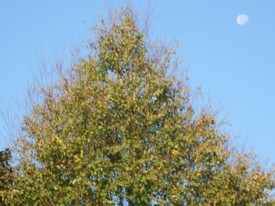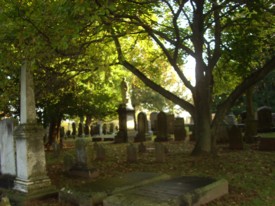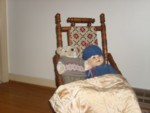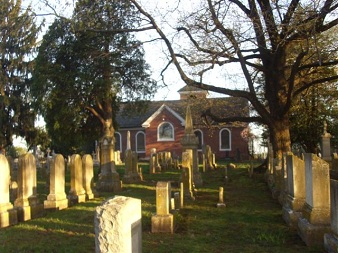
Contributions are welcome. There is a selection procedure. Please email your contributions on our:
Contact Page
 |
Additional Poetry
contributions Contributions are welcome. There is a selection procedure. Please email your contributions on our: Contact Page |
| Featured on this Page: Poetry by Dorian B | ||||||||||
|
|
||||||||||
|
|
|||||||||
| The Initiation
I try to
grasp the question, the quest, I want to train my
senses to feel--to burn--to flame, But let me cry or try
with every sinew of lifestrain, I lie drowsy and
drugged in a forest of thorn
|
|
 |
|
| Tarot Dream
A staccato sense of
wonder beating within my breast like a drum And far below a
straining hum, Outside the courtyard
wall, deep within the castle, Wise men, blind men, |
|

|
|
|
 |
Delores
Chesney
A playmate, a six-year old girl
Accent on the DIED.
All this was during the droning
lull of a steaming summer
*******
We jumped rope, didn't have play
dates.
Now, when I'm old enough
for matinee movies at the senior rate,
Did she cry? |
Winter Solstice My body in twisted bedsheets acknowledges the morning. I shiver, cold in the comforter. A street light shadow jets across the ceiling, glittering in the frosty dawn, for the sunlight Has traveled as far as it will ever go. Icy chill coats the outside windowpane. Across the narrow street, a curtain patch glows yellow, that grim first click of a lightswitch. Crows emit their compelling shrill caws. A dog barks from the stark and the chill of the no-longer night. Phantom footsteps clatter on the sidewalk.
|
|
The Squirrel Lady Late afternoon And on the giant oak tree, Old Constance Crossworthy Yet only with the angled sun's retreat Does gold or god or earth and heaven meet.
|
|
Mr. Little Mr. Little, at six
feet three, towered over many men Retiring at
home after his job was taken, He lived with a
cantankerous older sister. Big Sis had trouble
with the stairs. but one time,
paramedics pounding,
|
|
 |
 |
 |
|
|
Still, life ticks on. A one-way street. I get clues who I am by the people I meet. Sometimes I laugh. Sometimes I sneer. Other times I shrink with fear. Tick-tick-tick. A one-way road. Will the cars knock you
over, or your cares,
Tickticktickticktickticktick! Tick. I don't know what may
await at St. Peter's gate.
|
|
Millennium
Song
When I was barely four When I became five, my
burning question, They get jobs, they get
married, By the time I was seven Life ticks on. When I
turned eight, I added |
|
 |
Elegy for Enid It was you, my
foundation-friend, You re-created,
riding the G train to Brooklyn, That November evening
with me,
|
 |
| The Dying Theosophical Lodge | ||
 |
They arrive singly, Creeping up the creaky, steep stair. They were once so bold as to price an elevator. The proposal died there, Meeting minutes are vague. Victorian women who carry books, Once-earnest men with steel gray hair |
|
|
And serious looks. Some knowing nothing and others, too much, Hunch over a large round table A few take notes. They beg For spoon-fed gems, With faces a small child would make For that forbidden piece of chocolate cake. One stout old bearded fellow Dozes off in a corner chair He dims one sense, he claims, to sharpen another, To better hear the music (of the spheres). Inevitably, the snore, the gasp for air Arouses him, Prevents his pitching to the wooden floor. One of their number asks the same question Whatever the topic: Meditation, levitation, healing touch (Tonight's speaker intones on myth and fable). Hoping, each time anew, For the same safe answer he waits to hear in vain. One wall is lined With a monster mahogany bookcase.... The occasional mental case wanders in, Desiring respite from boredom and rain And, if lucky, stale oreo cookies. Who are these to seek, Week after week, To solve the world worn conundrum That men throughout all ages would explore: "Unexplained powers latent in man" While powerless to raise a hand? The bulb has burned out in the bay window lamp. The vestibule, littered with yellowed junk mail Gives space for the homeless man to encamp.  |
||
 |
Spring
Cleaning: Elaine Stayed Dust rags and hands-and-knees
mopping, |
|
The smell of every product to be had |
|
|
Although frayed, aging And somewhat in fright Of what or who awaits beyond This neon arcade Of the conscious day That my mind has made, I exalt in the pre-dawn rising Of the waning crescent moon. The cardinal chirps at dawn. I am the moon, not the sun. I am the slinking, skinny cat Who stalks her prey at night, In windblown paths, In my dreams, while others sleep. Let no one set a lid on my overbrimming. (Dorian B) |
 |
Easter Morning Ruminations |
 |
“The Lord is risen inDEED” intones the young, reedy voiced Episcopal priest. Spanking clean from the seminary, the last syllable suspiciously close to upspeak. Maybe he's not certain. “InDEED.” In thought, word and deed? Present tense. The priest himself looks tense. Felled by the Tridium? The congregation sings a hymn with a similar sentiment. I egress into the vernal drizzle, walking past the tulips and cemetery. “I believe for every drop of rain that falls...” What has risen for me lately? Never a cake...I could eat a chocolate egg. “Unless you eat the bread...” Price of gas has risen. Radiation levels in the Pacific ...peaceful....pacify...placebo...pacifist... Opiate of man. Taxes, except for banks. Cost of cremation. Odds of global annihilation Bread prices rising and all items going to market, to market to buy a fat pig. Gene manipulation to raise livestock. Is there deadstock? I must take stock. The stock market... a tear in my new stockings, lucky to get two wears. People talk about raising issues like poor people once talked about raising a few chickens in the back yard. A chicken in every Republican pot. Chickens shot with hormones, we eat them too. Early puberty. “And drink my blood...” blood bubbling from oil wells in the Middle East, Gushing out of arteries of the East Baltimore street kid dying in the alley. The Samaritan woman at the well. “All will be well.” J. of Norwich was an optimist. My anxiety level has risen. |